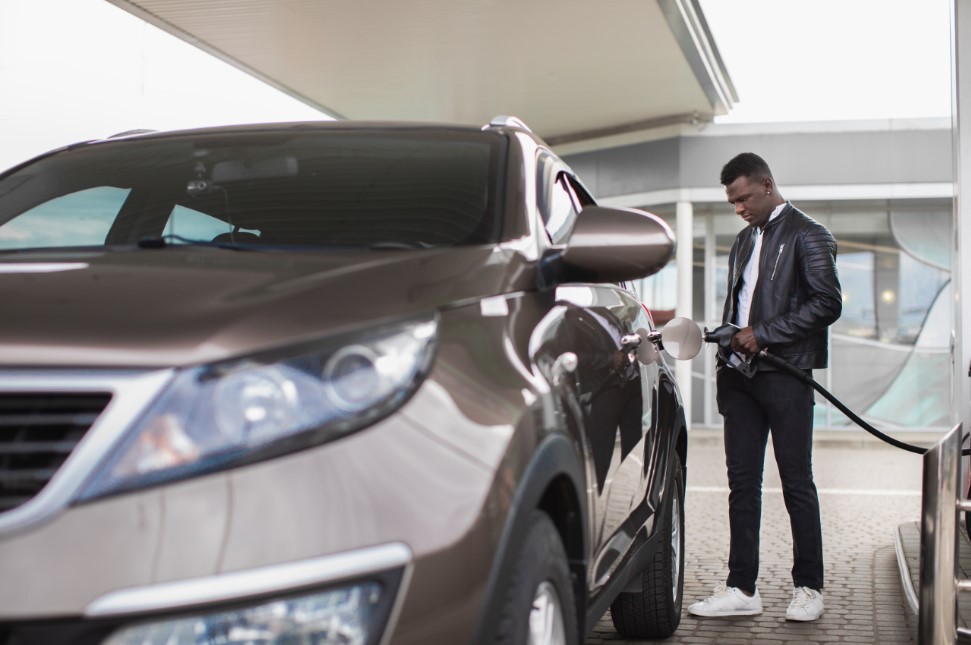5 Things Teens & New Drivers Should Know Before Practicing Behind the Wheel

Learning how to drive as a teen or as a new driver can be a challenging, anxiety-filled experience. Yet, the truth is practice leads to preparedness. The more you practice, the more prepared you’ll be when it’s time to take that driver’s license photo and begin driving by yourself.
But where do you begin amidst all the excitement and apprehension? At Christian Brothers Automotive, we advocate focusing on key aspects of driving practice – the who, what, when, where, and how – that significantly influence the learning process and foster safe, responsible driving habits.
Even if you know how to drive, it will take hours and hours of practice to become 100% comfortable obtaining your license and driving on your own. To help you practice before your driver's test and gain the confidence you need on the road, here are five key aspects to consider: Who, What, When, Where, and How.
WHO Should You Practice Driving With?
Once you have a learner's permit, new drivers can begin driving in all 50 states with a licensed driver who is at least 21 years old. But, proceed with caution. The right companion is key to safety and success.
Learning how to operate your vehicle, maneuver in emergency situations, and practice other safe driving techniques can require more than just a permit and your friend's or sibling's advice. We recommend the following companions:
A Certified Driving Instructor – Working with a certified driving instructor provides an extra level of instruction that you won't get from anyone else. They will teach you everything from the basics to more advanced skills like parallel parking, and they can help you ace your driver's test.
A Parent or Legal Guardian – Your parent or legal guardian can provide guidance and support behind-the-wheel, while also teaching you important life lessons about responsibility. It can also be a great bonding moment!
Someone with Over 10 Years of Driving Experience – Finding a family member, family friend, or an adult neighbor with over 10 years of driving experience is a great way to get comfortable and learn from someone who knows the ropes.
When weighing your options, find someone who can remain patient, calm, and collected when you are behind the wheel, someone who won't yell or become frustrated, someone you trust and are comfortable with in potentially stressful situations!
WHAT Are The Essential Skills You Should Focus On?
When practicing driving, focus on mastering daily-used operations through repeated practice to make them second nature. Here are the essential skills:
Master basic car operations like starting the car, accelerating, braking, and using signals, headlights, and washer fluid and wipers.
Develop the habit of checking your blind spots.
Practice different parking types, including parallel, reverse, and angle parking.
Learn to make safe turns, U-turns, and merge with traffic.
Familiarize yourself with road signs, signals, and markings.
Maintain appropriate speed limits and adjust speed based on road conditions.
Understand right-of-way rules and road sharing with other drivers, cyclists, and pedestrians.
Prepare for unexpected situations like tire blowouts, brake failure, or encountering animals.
Practice defensive driving by anticipating potential hazards and reacting safely.
Drive under various conditions, including night and adverse weather conditions.
Practicing these essential skills first will build up your confidence and prepare you for more difficult, advanced driving training. When should you practice these skills?
WHEN Is The Best Time To Practice Driving?
In order to become an independent driver, it's important to practice driving in all possible circumstances, because you won’t always be driving in sunny weather and 75° temperatures while everyone is at work. In the beginning, stick to driving during the day when the weather is calm and the roads are quiet. When that has become a breeze, start practicing driving when it’s raining or snowing, at night time, when it’s bumper to bumper traffic, and when everyone is flying down the highway and zooming down the interstate. Are there best practices for where a new driver should start working on these skills?
WHERE Are The Best Places to Practice Driving?
When starting out, it's best to stay in empty parking lots or other spacious areas without many obstacles or distractions. As you become more comfortable and confident, slowly progress. Here's a simple outline of the possible places to practice along with a progression of more difficult locations:
Parking Lots or Other Empty Spaces – Start with basics like accelerating, braking, and steering, and practice them in empty spaces. You can also work on reverse parking and practicing three-point turns.
Subdivisions & Residential Areas – As you get more confident, progress to driving in residential areas with fewer cars and pedestrians. This is where you can work on turning, lane changes, and headlight and speed limit rules.
Busy Streets & Highways – Once you master residential areas, progress to streets with more traffic where you can practice using turn signals, driving at faster speeds, and becoming comfortable with different driving conditions, from congested and slow to busy and fast.
Regardless of where you choose to practice, be sure to stay aware of your surroundings. Remember–safety always comes first!
HOW To Stop Practicing And Start Driving Solo?
Before you embark on your driver's license test, be sure to put yourself through the final practice scenario: distractions. Invite your parents, grandparents, a sibling, or any other adult you trust to sit in the car as you drive. Also, try driving with music or a podcast playing in the background. Plenty of real life distractions will come your way, so it’s best to practice your skills at staying focused while distractions are present and while a trusted adult is in the car with you.
This is a great way to wrap up your intense, first-time-driver practice. It will help you make sure your skills are where they need to be before the test. Urgent: never drive distracted; keep your eyes on the road, hands on the wheel, and mind in check.
There you have it…who, what, when, where, and how. We’ve only scratched the surface, so if you’d like to diver deeper in being as prepared as possible, check out the links below for more resources.
Other Resources for Teen & First-Time Drivers
Our auto blog has a variety of tips, tricks, and helpful guides for first-time drivers:
6 Steps to New Vehicle Registration for Teen and First-Time Drivers
More Than Texting and Driving: The Top 10 Driving Distractions
Christian Brothers Automotive Wants to Be Your First Auto Shop
Obtaining your license is an exciting milestone. However, driving is a privilege that comes with an enormous responsibility. At Christian Brothers Automotive, we're proud to be more than just an auto repair shop. We are invested in your safety and providing you with the best, long-term car care possible. If you know little about cars, we want to help! If you love cars and know the ins and outs, we can add to that knowledge.
Our experienced technicians can answer any questions you have about how to properly maintain your vehicle for optimal performance. With more than 250+ locations nationwide and growing, Christian Brothers Automotive is here to help you get the most out of your ride.
Find your local Christian Brothers Automotive to get a FREE health check for your ride before you head out! Just ask for our Courtesy Inspection when you arrive, and we’ll help you know how your car is doing and what we recommend to keep it running well for a long time. See you soon!
This blog was written in April, 2014, and was updated in August, 2023, to reflect current industry standards and best practices.


[1].jpg)
sunwash-tech-with-customer.png)

